-
Doctors
-
Specialities & Treatments
Centre of Excellence
Specialties
Treatments and Procedures
Hospitals & Directions HyderabadCARE Hospitals, Banjara Hills CARE Outpatient Centre, Banjara Hills CARE Hospitals, HITEC City CARE Hospitals, Nampally Gurunanak CARE Hospitals, Musheerabad CARE Hospitals Outpatient Centre, HITEC City CARE Hospitals, Malakpet
HyderabadCARE Hospitals, Banjara Hills CARE Outpatient Centre, Banjara Hills CARE Hospitals, HITEC City CARE Hospitals, Nampally Gurunanak CARE Hospitals, Musheerabad CARE Hospitals Outpatient Centre, HITEC City CARE Hospitals, Malakpet Raipur
Raipur
 Bhubaneswar
Bhubaneswar Visakhapatnam
Visakhapatnam
 Nagpur
Nagpur
 Indore
Indore
 Chh. Sambhajinagar
Chh. SambhajinagarClinics & Medical Centers
Book an AppointmentContact Us
Online Lab Reports
Book an Appointment
Consult Super-Specialist Doctors at CARE Hospitals

Minimal Invasive Spine Surgery
Minimal Invasive Spine Surgery
Minimal Invasive Spine Surgery In Hyderabad, India
A procedure of performing spinal surgery is known as minimally invasive spine surgery. Your surgeon makes a single large incision (cut) into your skin in a "conventional" open surgical procedure.
A considerable quantity of muscle and surrounding soft tissue is distributed or pulled out of the way and removed from the bone. This lets your surgeon see the surgery site properly. The process might lead to additional muscle injury and pain.
During the surgery, the surgeon will make one or more small incisions (approximately 12 inches each) through the skin. To allow the medical professional to work in a narrower operational field, a small metal tube or endoscope is inserted into the incision. When compared to a single lengthy incision, working through smaller wounds does far less harm to muscles and soft tissues.
There are many types of surgeries involved in minimally invasive spine surgery-
- Spinal fusion- performed on degenerative or “slipped” discs.
- Deformity corrections like for scoliosis and kyphosis.
- Decompression of spinal tumours.
- Repair and stabilization of vertebral compression fractures.
- Lumbar spinal stenosis.
- Infection in the spine.
Symptoms
There are many factors that can make you opt for minimally invasive spinal surgery-
- Back or neck pain or sciatica is the type of pain, weakness, or tingling that extends to the lower limbs.
- Bulging or herniated disks or degenerative disk disease
- Worn spinal joints called posterior facet syndrome
- Injured or diseased spinal nerve roots
- Herniated disc
- Lumbar spinal stenosis
- Spinal deformities such as scoliosis
- Spinal infections
- Spinal instability including spondylolisthesis
- Vertebral compression fractures
- Spinal tumours
This procedure isn’t approved for everyone. It has distinct indications that a surgeon can tell. With the proper diagnosis, your doctor will decide whether or not you need the surgery.
Risks
The common risks associated with minimally invasive spinal surgery are-
- Bad reaction to the anaesthesia.
- Pneumonia after surgery.
- Blood clots in lower limbs (deep vein thrombosis) that may travel to the lungs (pulmonary embolism).
- Infection at the site of surgery.
- Blood loss requiring a transfusion due to surgery.
Specific risks include-
- Injury to the nerves or spinal cord. This may result in pain or even paralysis.
- Damage to surrounding tissues.
- Pain from the surgery itself.
- Spinal fluid leak
You may also require a second surgery if the first attempt of spinal surgery fails.
Benefits
Minimally invasive spine surgery provides numerous benefits compared to open surgery, such as:
- Reduced anesthesia requirements
- Decreased blood loss during the surgical procedure
- Minimal damage to muscles and soft tissues
- Lower risk of infection
- Diminished post-surgery pain
- Decreased reliance on pain medication
- Enhanced cosmetic outcome with a few small scars rather than one large scar
- Shorter hospital stay, typically a few days as opposed to about a week
- Faster recovery period, usually a few months instead of up to a year
- Quicker return to daily activities, including work
Diagnosis
After conducting the physical examinations and blood tests your doctor can recommend a series of tests and procedures. With the advancements, doctors at CARE Hospitals conduct the diagnosis after knowing the medical history of the patient.
The procedure is not suitable for everyone and hence requires a series of tests before the treatment. X-rays or magnetic resonance imaging (MRI) scans of your spine will be conducted by your surgeon. This will help the surgeons to know the spine and its condition.
Antibiotics may be prescribed to take before and after your surgery. These help in the prevention of infection. The procedure is treated after the doctor knows the following-
- If you have persistent pain
- If the pain travels from the neck to the extremities
- If the pain travels from the lower back to lower limbs
- If you had back surgery and still have pains
Patients will undergo the decompression of the spinal cord, stability and correction of the deformity. To know whether you are eligible to undergo the surgery your surgeon will diagnose all the conditions mentioned. Book the appointment at CARE Hospitals to get the proper analysis.
Treatment
The treatment is followed after the full diagnosis of the patient-
- Anaesthesia is given to the patient that can be regional or general.
- The surgeon decides the apt technique surgery for the patient. The most common can be done by making an incision in the skin- at the back, chest or abdomen.
- A fluoroscope or endoscopy is used to determine the area of the incision. With the help of a portable X-Ray machine, spine photos are taken to know the status of the area. Endoscopic spine surgery is an improvised device that makes better visibility, light, and 3D depth perception.
- It gives surgeons better visibility, light, and 3D depth perception that is a thin tube with the camera lens and light source. Also, the endoscope may be used to insert a broad range of equipment.
- It allows the minimally invasive method to be used for many procedures and patients. The endoscopic spine surgery method can also be used to carry spinal fusions and decompressions.
- Retractors create little tunnels of workspace from the hole in the skin to the targeted location on the spine. The same is used to remove bone and tissue from the spine during surgery. Tubular retractors keep the muscles away from the surgical site. The muscles will return to their position once the retractors are removed.
- Stitches are made after the surgery to close the incision site.
Why choose CARE Hospitals
CARE Hospitals heritage is defined by its unwavering commitment to clinical excellence, low costs, cutting-edge technology, and infrastructure. CARE Hospitals is one of the world's first hospitals to use technology to help with seamless healthcare delivery. We were a few of the first ones in India to introduce various cutting-edge advancements. We work for the benefit of humanity and are devoted to achieving and maintaining excellence in healthcare.
Our Doctors
-

Dr. Sachin Adhikari
MBBS, MS, M.ch (PGI Chandigarh)
Neurosurgery
View More -

Dr. Arpit Agarwal
MBBS, MD (Medicine), DM (Neurology)
Neurology
View More -

Dr. Sanjeev Kumar Gupta
MBBS, MS, MCh
Neurosurgery
View More -

Dr. Sanjeev Gupta
MBBS, MS, MCh
Neurosurgery
View More -
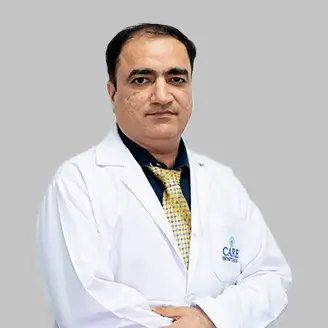
Dr. Abhishek Songara
MBBS, M.S, M.Ch (Neurosurgery )
Neurosurgery
View More -

Dr. Anand Soni
MD, DM (Neurology)
Neurology
View More -

Dr. Ankur Sanghvi
MBBS, MS, Mch (Neuro)
Neurosurgery
View More -

Dr. Arjun Reddy K
MBBS, MS, MCh
Epilepsy, Neurosurgery
View More -

Dr. Arun Reddy M
MBBS, DNB – Neurosurgery, FCVS (Japan), Fellow Endoscopic Spine
Epilepsy, Neurosurgery
View More -

Dr. Atmaranjan Dash
MBBS, MS, MCh (Neurosurgery - AIIMS Delhi), Fellowship in Minimally Invasive Spine Surgery, Fellowship in Endoscopic Spine Surgery
Neurosurgery
View More -

Dr. Bhavani Prasad Ganji
MBBS, DNB (Neurosurgery), Ex-Assistant Professor (NIMS)
Epilepsy, Neurosurgery
View More -

Dr. Bhuvaneswara Raju Basina
MBBS, MS (Orthopaedic Surgery), M.Ch (Neuro Surgery), Fellowship in Spine Surgery (USA), Fellowship in Functional & Restorative Neurosurgery (USA), Fellow in Radiosurgery (USA)
Epilepsy, Neurosurgery, Spine Surgery
View More -

Dr. Bikash Kumar Mishra
MD, DM (Neurology), Clinical Fellowship in Pain management (NIH,USA) Epilepsy Fellowship Program (North Carolina, USA)
Neurology
View More -

Dr. Bimal Prasad Padhy
MBBS, MD, DM
Epilepsy, Neurology
View More -

Dr. G Kishore Babu
MBBS, MD (General Medicine), DM (Neurology)
Neurology
View More -
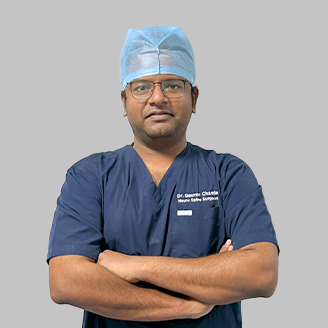
Dr. Gaurav Sudhakar Chamle
MBBS, MS General Surgery, DNB Neurosurgery, Fellow in Endoscopic and Minimally Invasive Spine Surgery
Neurosurgery
View More -

Dr. Haritha Koganti
MBBS, MD (General Medicine), DM (Neurology)
Epilepsy, Neurology
View More -
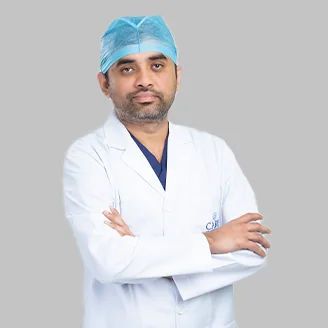
Dr. J V N K Aravind
MBBS, MS, MCH
Epilepsy, Neurosurgery
View More -

Dr. K Sateesh Kumar
MBBS (OSM), MD (General Medicine), DM (Neurology)
Epilepsy, Neurology
View More -

Dr. K. Vamshi Krishna
MBBS, MS (General Surgery), MCh (Neurosurgery)
Epilepsy, Neurosurgery
View More -

Dr. Kailas Mirche
MBBS, MD (Internal Medicine), DM (Neurology)
Epilepsy, Neurology
View More -

Dr. Kapil Muley
MBBS, MS, MCH (Neurosurgery)
Neurosurgery, Spine Surgery
View More -

Dr. Laxminadh Sivaraju
MBBS, MCh (Neuro surgery)
Epilepsy, Neurosurgery
View More -

Dr. M P V Suman
MBBS, DNB (Gen Med), DrNB (Neurology), PDF (Headache-FWHS)
Neurology
View More -

Dr. Mamindla Ravi Kumar
MBBS, MS, MCh (NIMS), Fellow in Endospine (France) & UBE Spine Surgery (South Korea) & Minimally Invasive Spine Surgery Fellow in Skull Base Surgery (MS Ramaiag and WSBF)
Epilepsy, Neurosurgery
View More -

Dr. Mandar G Waghralkar
MBBS, MD (Internal Medicine), DM (Neurology), FINR, EDSI
Neurology
View More -

Dr. MGV Aditya
MBBS, MD (General Medicine), DM (Neurology)
Neurology
View More -

Dr. Mitalee Kar
MBBS, DNB (Medicine), DNB (Neurology)
Neurology
View More -

Dr. Murali Krishna CH V
MBBS, MD (General Medicine), DM (Neurology)
Epilepsy, Neurology
View More -

Dr. N.V.S Mohan
MBBS, MCh (Neuro Surgery), DNB
Neurosurgery
View More -

Dr. P. Chandra Shekar
MBBS, MD (Internal Medicine), DM (Neurology)
Epilepsy, Neurology
View More -

Dr. Parag Rameshrao Aradhey
MBBS, DNB (Medicine), DNB (Neurology)
Neurology
View More -

Dr. Prof. Umesh T
MBBS, MD (General Medicine), DM (Neurology), DNB (Neurology)
Epilepsy, Neurology
View More -

Dr. R. Kiran Kumar
MBBS, MD (General Medicine), DM (Neurology)
Epilepsy, Neurology
View More -

Dr. Ramesh Penkey
MBBS, MD (General Medicine), DM (Neurology)
Epilepsy, Neurology
View More -

Dr. Randhir Kumar
MBBS, MS, MCh
Epilepsy, Neurosurgery
View More -

Dr. Ritesh Nawkhare
MBBS, MS (Gen. Surgery), MCh (Neurosurgery)
Neurosurgery
View More -

Dr. S K Jaiswal
MBBS, MD, DM Neurology
Epilepsy, Neurology
View More -

Dr. S N Madhariya
MBBS, MS, MCh
Neurosurgery
View More -

Dr. Sandeep Talari
MBBS, MS (General Surgery), MCh (Neurosurgery)
Neurosurgery
View More -

Dr. Sandesh Nanisetty
MBBS, DNB(General Medicine), MNAMS, DM(Neurology), SCE Neurology (RCP, UK), Fellow European Board of Neurology (FEBN)
Epilepsy, Neurology
View More -

Dr. Sanjeev Kumar
MBBS, MS, MCh
Neurosurgery
View More -

Dr. Shashank Jaiswal
MBBS, DM (Neurology), PDF (Stroke Intervention), PDF (Epilepsy)
Epilepsy, Neurology
View More -

Dr. Siddharth Sharma
MBBS, MS (General Surgery), MCh (Neurosurgery)
Neurosurgery
View More -

Dr. Sucharita Anand
MBBS, MD Medicine, DM Neurology, PDF Clinical Neuro-Physiology
Neurology
View More -
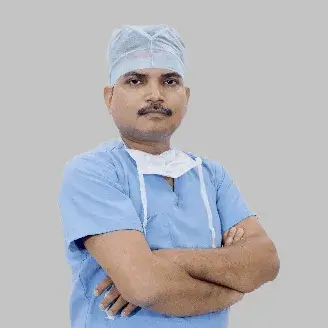
Dr. Susant Kumar Das
MBBS, MS, MCh (Neurosurgery)
Neurosurgery
View More -
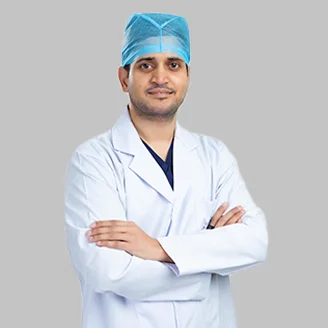
Dr. Teja Vadlamani
MBBS, DrNB (Neurosurgery)
Epilepsy, Neurosurgery
View More -

Dr. Umesh Kumar Chandra
MBBS, MD, DrNB
Neurology
View More -

Dr. Venkatesh Yeddula
MBBS, MS (General Surgery), M.Ch (Neurosurgery)
Epilepsy, Neurosurgery
View More -

Dr. Vijay Kumar Terapalli
MBBS, MS (General Surgery), MCh (Neurosurgery)
Neurosurgery
View More -

Dr. Vishal Gaikwad
MBBS, MD (General Medicine), DM- Neurology
Neurology
View More
Couldn’t find what you were looking for?
Need any help? Get a Call Back.

Still Have a Question?

